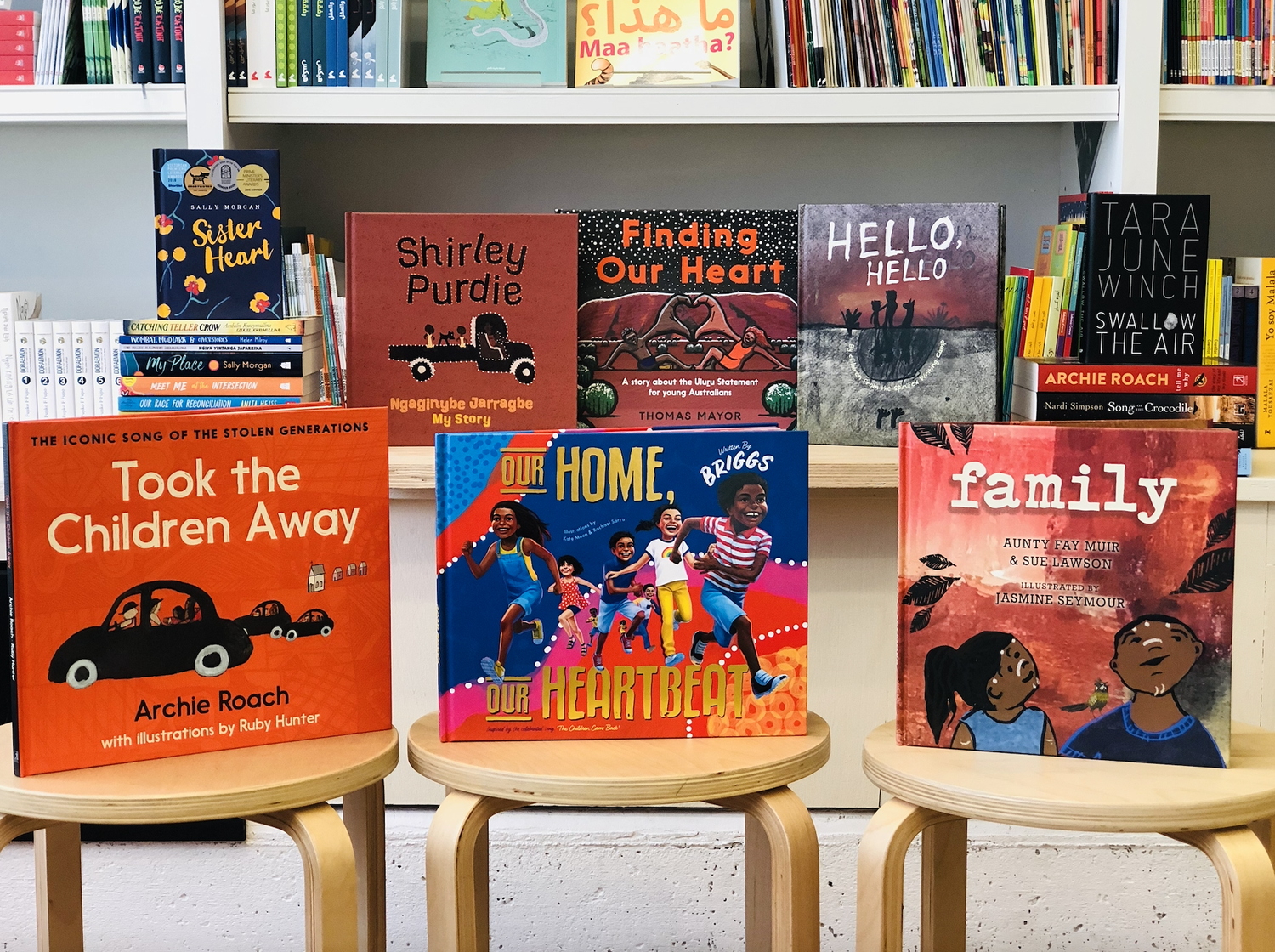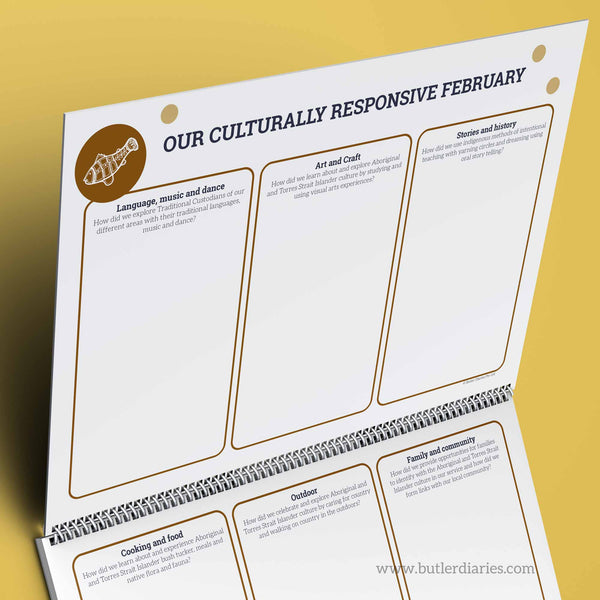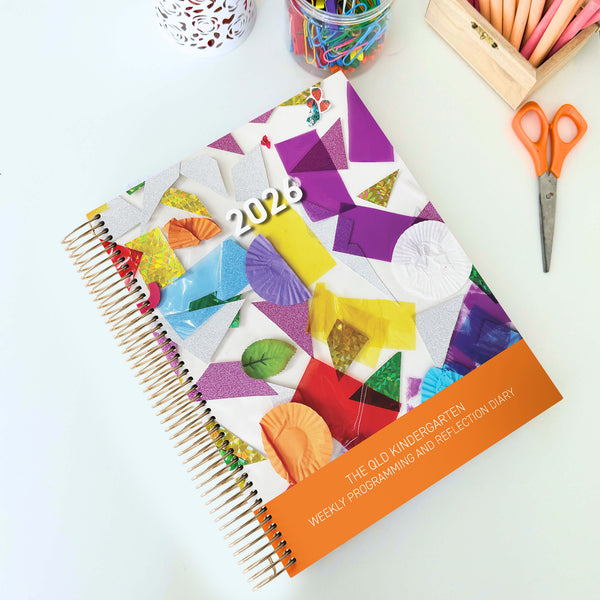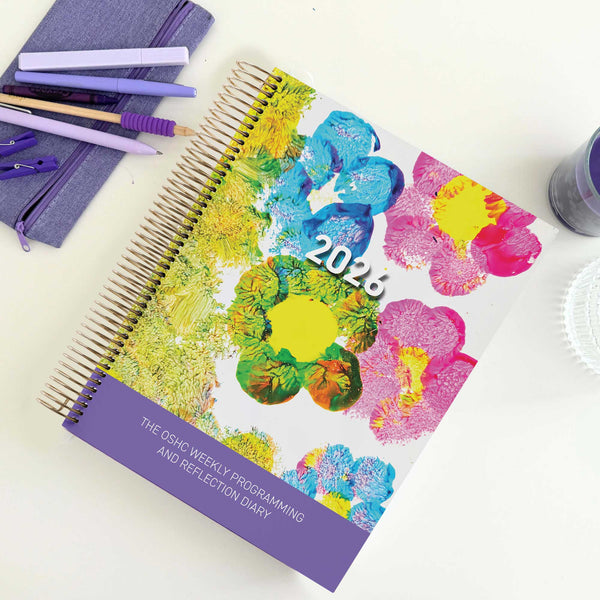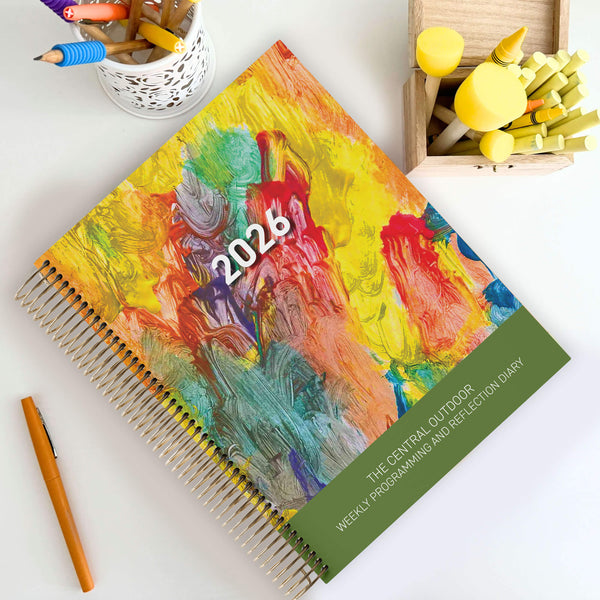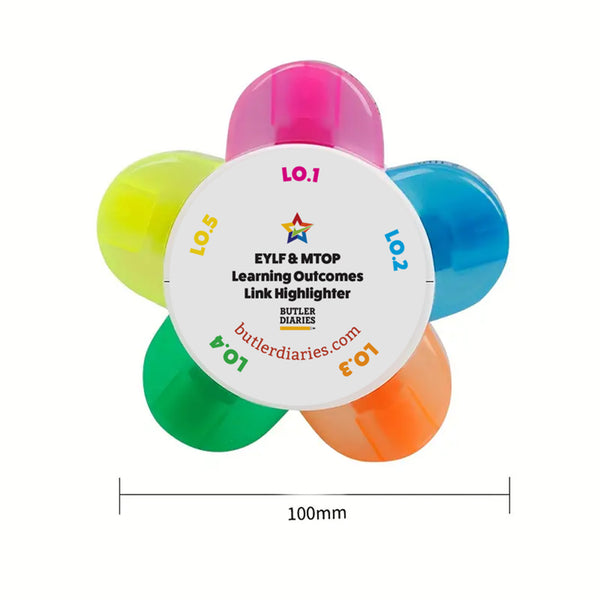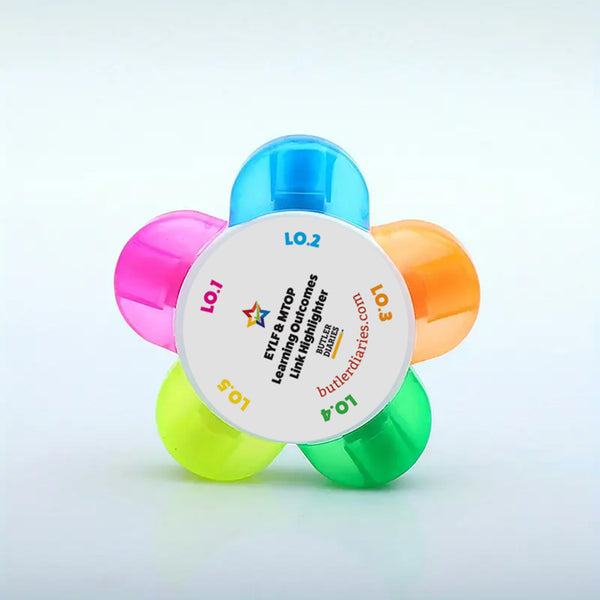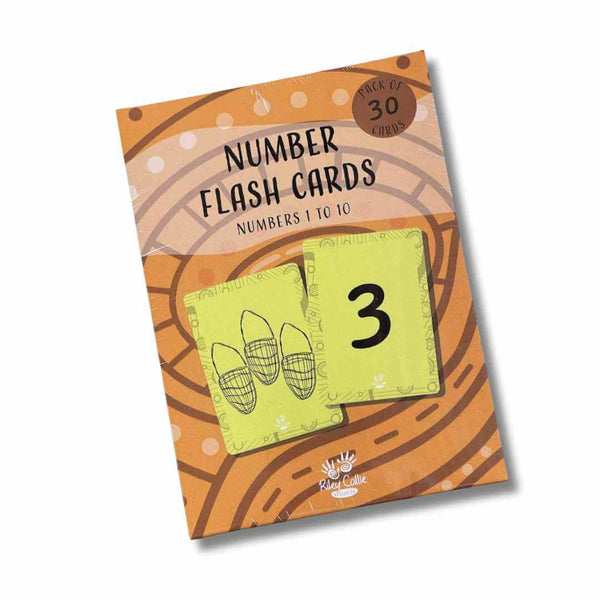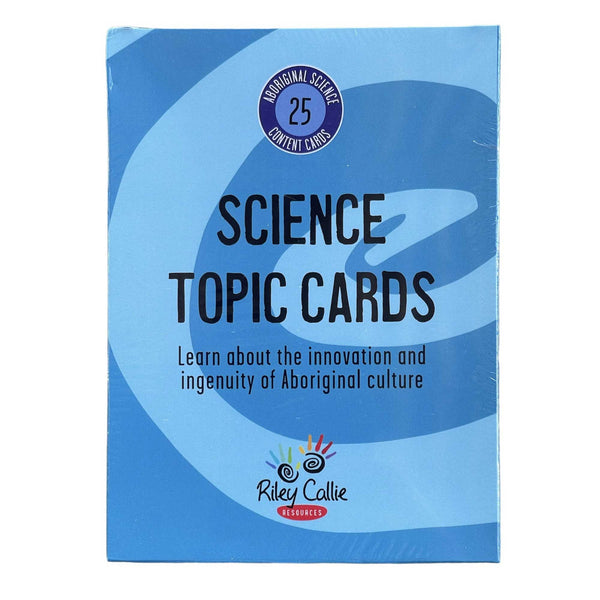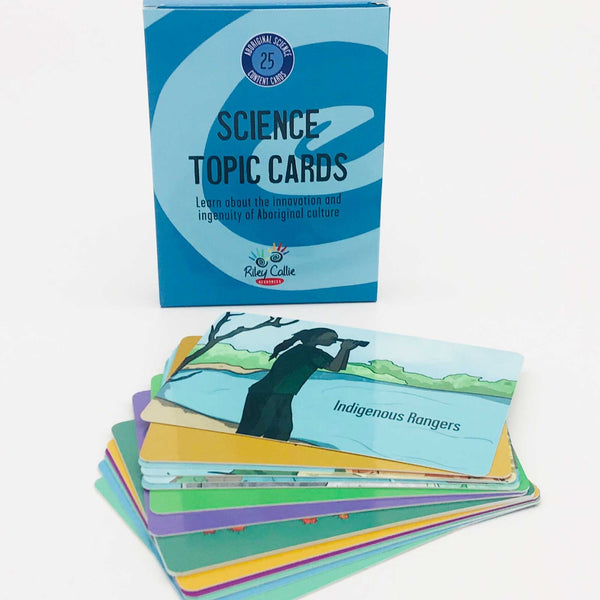NAIDOC Week is a significant event in Australia that celebrates the history, culture, and achievements of Aboriginal and Torres Strait Islander peoples. For educators in early childhood education, this annual observance offers a valuable opportunity to engage young children in learning about Indigenous cultures, fostering respect, and promoting reconciliation. In this article, we explore NAIDOC Week using a EYLF lens and provide program suggestions and examples.
Download your Free Programming Spread Example below.
NAIDOC Week 2025: The Next Generation: Strength, Vision & Legacy
NAIDOC Week, which stands for the National Aborigines and Islanders Day Observance Committee, is an annual event held across Australia. It recognises and celebrates the diverse cultures, histories, and contributions of Aboriginal and Torres Strait Islander peoples. The week is filled with various activities and events that promote understanding, respect, and reconciliation between Indigenous and non-Indigenous communities.
"The 2025 theme, "The Next Generation: Strength, Vision & Legacy," celebrates not only the achievements of the past but the bright future ahead, empowered by the strength of our young leaders, the vision of our communities, and the legacy of our ancestors. " - www.naidoc.org.au

NAIDOC Week 2025: How it Links with EYLF and NQS
-
Respectful Relationships: The EYLF emphasises the significance of respectful relationships and partnerships with families and communities. During NAIDOC Week, educators can collaborate with Indigenous community members, Elders, or local organisations to involve them in children's learning experiences. This collaboration ensures that cultural knowledge is shared authentically and respectfully, enhancing children's understanding and appreciation of Indigenous culture.
-
Identity, Wellbeing, and Belonging: NAIDOC Week provides a platform to nurture children's sense of identity, wellbeing, and belonging, as highlighted in both EYLF and NQS. By engaging in activities that explore Indigenous histories, traditions, languages, and art, educators can foster a sense of pride in Indigenous children and promote cultural responsiveness among all children.
-
Diversity and Inclusion: EYLF and NQS advocate for embracing diversity and creating inclusive environments. Educators can introduce children to Indigenous stories, music, dance, and art forms, encouraging them to appreciate the richness and diversity of Indigenous cultures. By incorporating Indigenous perspectives into the curriculum, educators foster a sense of belonging for all children and lay the foundation for respectful relationships across cultures.
-
Community Engagement: NAIDOC Week presents an excellent opportunity to strengthen community engagement, a key aspect of the NQS. Educators can organise cultural events, invite Indigenous guests, or facilitate excursions to local Indigenous sites. These experiences create connections between children, families, educators, and the wider community, fostering a sense of shared responsibility in promoting reconciliation and respect.


Your NAIDOC Week 2025 Program Inspiration with Links to EYLF
Here are some suggested ways to celebrate NAIDOC Week in your early learning service while aligning with the principles of EYLF.
- Acknowledge Country and Welcome to Country: Most centres are beginning their days with Acknowledgement of Country. If you haven't, NAIDOC Week is a great opportunity to implement a daily routine of acknowledging the traditional custodians of the land on which your early childhood service is located. This can be done through a Welcome to Country ceremony or a discussion with the children about the significance of the land and the local Indigenous community. It fosters respect for Indigenous culture and provides a foundation for further learning.
This practice aligns with the EYLF Outcome 2: Children are connected with and contribute to their world. By acknowledging the traditional custodians and engaging in a Welcome to Country ceremony, children develop a sense of belonging to and respect for the land and its Indigenous peoples. This outcome also promotes an understanding of cultural diversity and fosters positive relationships with the local community.

- Explore Indigenous Stories and Languages: Introduce children to Indigenous stories, both traditional and contemporary, as a way of celebrating the rich oral traditions of Aboriginal and Torres Strait Islander cultures. Use storytelling techniques to engage children and promote their understanding of Indigenous perspectives, values, and ways of life. Incorporate local Indigenous languages, phrases, or greetings into daily routines to promote language diversity and cultural appreciation.
Photo by: Lost in Books: Australian First Nations Books
- Engage with Indigenous Art and Music: Immerse children in the vibrant world of Indigenous art and music during NAIDOC Week. Explore various art forms, such as dot painting, bark painting, or sand art, and encourage children to create their own artwork inspired by Indigenous styles. Introduce traditional Indigenous musical instruments, songs, and dances, providing opportunities for children to explore rhythm, movement, and self-expression while developing an appreciation for Indigenous artistic traditions.
This practice connects to EYLF Outcome 4: Children are confident and involved learners. Through engaging with Indigenous art and music, children explore their creativity, express themselves, and develop an appreciation for different art forms. They also gain knowledge about the cultural significance of art and music in Aboriginal and Torres Strait Islander cultures, enhancing their understanding of diversity and fostering confidence in their own creative abilities.

- Connect with Indigenous Communities: Invite members of the local Indigenous community, such as Elders, artists, or storytellers, to visit your early childhood service and share their knowledge and experiences. This interaction provides children with authentic connections to Indigenous culture and helps foster respect and appreciation for diverse perspectives. Collaborate with community members to plan cultural activities, workshops, or excursions that deepen children's understanding of Indigenous heritage.
Connecting with Indigenous communities supports EYLF Outcome 2: Children are connected with and contribute to their world. By inviting Indigenous community members to share their knowledge and experiences, children develop an understanding of different cultures, perspectives, and ways of life. This outcome promotes respect for diversity and encourages children to actively contribute to their communities through meaningful interactions.
- Explore Indigenous Bush Tucker and Sustainability: Engage children in exploring Indigenous bush tucker and sustainable practices, highlighting the deep connection Indigenous peoples have with the land. Create a sensory garden featuring native plants used for food or medicinal purposes and discuss their significance. Encourage children to participate in gardening activities and learn about sustainable practices, emphasising the importance of caring for the environment. We stock a number of Riley Callie Indigenous Resources that connect children to Bush Tucker and Country, you can view them here.
Exploring Indigenous bush tucker and sustainability practices aligns with EYLF Outcome 3: Children have a strong sense of wellbeing. By engaging with nature and learning about Indigenous connections to the land, children develop an understanding of sustainability and respect for the environment. Exploring bush tucker also promotes healthy eating habits and an appreciation for the nutritional value of native plants, contributing to children's overall wellbeing.
- Promote Respectful Relationships and Inclusion: Incorporate discussions and activities that promote respectful relationships and inclusion within the early childhood setting. Use books, videos, or discussions to address topics such as diversity, equality, and fairness, emphasising the importance of respecting and valuing different cultures and perspectives. Encourage children to share their own experiences and ideas, fostering a sense of belonging and empathy for others.
Promoting respectful relationships and inclusion relates to several EYLF Outcomes, including Outcome 1: Children have a strong sense of identity, and Outcome 2: Children are connected with and contribute to their world. By discussing diversity, equality, and fairness, children develop a positive sense of self and an understanding of the value of different cultures. Promoting respectful relationships fosters empathy, inclusivity, and a sense of belonging among children, contributing to their overall wellbeing and social development.
Beyond NAIDOC Week
NAIDOC Week is a wonderful week to celebrate and reconcile; however, your cultural responsiveness should not end when NAIDOC Week does. Incorporating Indigenous ways of knowing, being, and doing in early childhood education all year round is a powerful way to promote cultural understanding, respect, and reconciliation. By embracing Indigenous perspectives, practices, and knowledge systems, educators can create inclusive and culturally responsive programs that honour and celebrate the rich heritage of Aboriginal and Torres Strait Islander peoples.
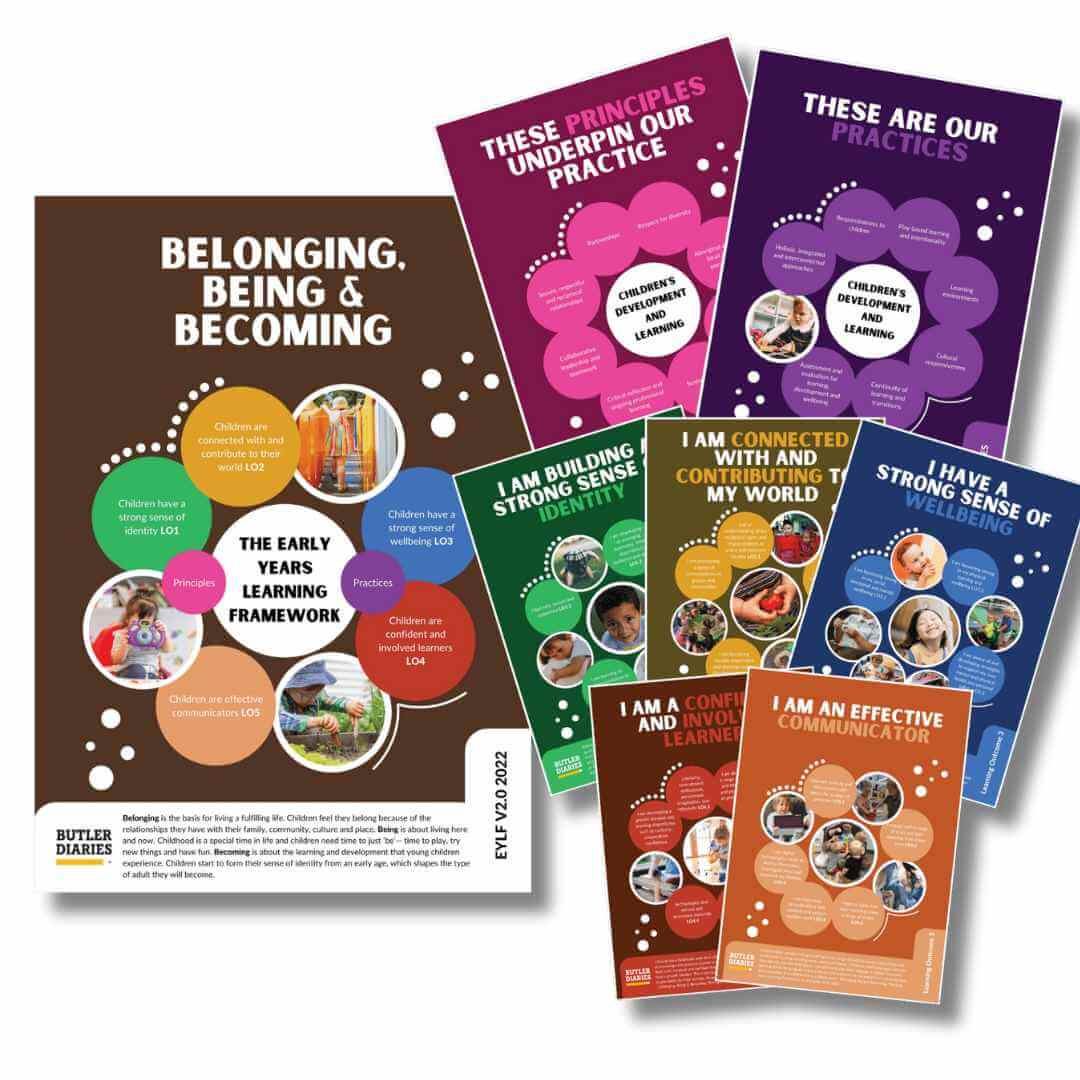
EYLF V2.0
As you are aware, from 2024 V2.0 of the Early Years Learning Framework will replace the 2012 Framework. A part of the main changes focus on enhancing Aboriginal and Torres Strait Islander perspectives and moving away from 'cultural competence' to 'cultural responsiveness.' These changes are reflected in principles, practices and learning outcomes. Learn more about these changes in our article, Unpacking the New EYLF and MTOP V2.0. These changes emphasise embedding Aboriginal and Torres Strait Islander ways of knowing, being, and doing in your Program.
Understanding Indigenous Ways of Knowing, Being, and Doing
Indigenous ways of knowing, being, and doing encompass the unique cultural perspectives, values, and knowledge systems of Aboriginal and Torres Strait Islander peoples. These ways of being reflect a deep connection to the land, community, spirituality, and the holistic nature of existence. By embracing and integrating these perspectives into early childhood education, educators can foster a greater appreciation for Indigenous cultures and promote cultural competency among children.
- Respectful Relationships and Partnerships: Building respectful relationships and partnerships with local Indigenous communities, Elders, and families is crucial in embedding Indigenous ways of knowing, being, and doing. Seek guidance and cultural insights from Indigenous community members and involve them in program planning and decision-making processes. Collaborate with local Indigenous organisations and seek opportunities for cultural exchanges and learning. Butler Diaries connects with our local Indigenous organisations to stock their resources. You can view our Indigenous resources here.

Building respectful relationships and partnerships with Indigenous communities aligns with the Early Years Learning Framework (EYLF) Outcome 2: Children are connected with and contribute to their world. By collaborating with local Indigenous community members, educators create opportunities for children to develop meaningful connections, respect cultural diversity, and engage in reciprocal relationships, fostering a sense of belonging and understanding.
- Acknowledge and Celebrate Indigenous Culture: Create a physical environment that reflects and respects Indigenous cultures. Display Indigenous artwork, symbols, and images throughout the learning environment. Incorporate Indigenous languages, names, and greetings in daily routines. Celebrate Indigenous culture with meaningful activities and discussions.
Acknowledging and celebrating Indigenous culture corresponds to EYLF Outcome 1: Children have a strong sense of identity. By incorporating Indigenous artwork, symbols, and images into the learning environment, educators help children develop pride in their own cultural identity and promote respect for diverse cultural heritages. This outcome supports children in developing a positive self-image and an appreciation for the cultural identities of others.
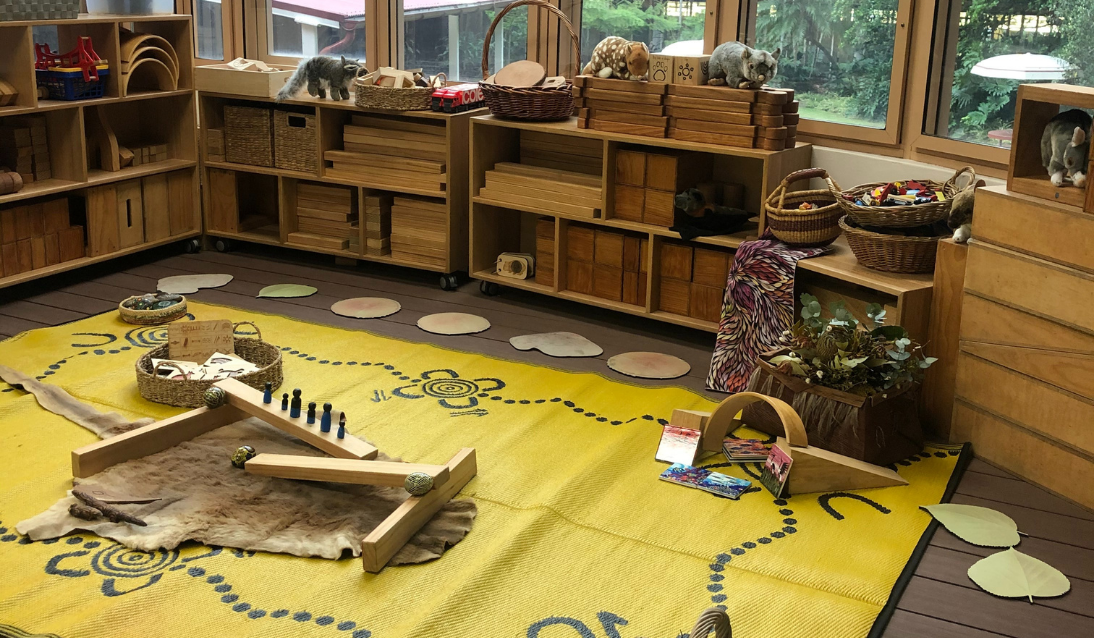
- Engage with Indigenous Cultural Practices: Engage children in hands-on experiences that connect them with Indigenous cultural practices. This can include traditional art techniques, such as dot painting or weaving, learning about traditional tools and their uses, or participating in Indigenous dances and music. These experiences allow children to develop a deeper understanding and appreciation for Indigenous ways of doing and being.
Engaging children in Indigenous cultural practices corresponds to EYLF Outcome 3: Children have a strong sense of wellbeing. By participating in activities such as traditional art techniques, dances, and music, children develop a sense of connection to their own cultural heritage and gain an appreciation for the diverse ways of being and doing in Indigenous cultures. This outcome supports children's emotional, physical, and spiritual wellbeing.

- Foster Land and Community Connections: Support children's connection to the land by exploring the local natural environment and Indigenous perspectives on caring for the Earth. Engage in activities such as bush walks, nature play, or gardening projects that promote respect for the land and its significance in Indigenous cultures. Encourage children to learn about and develop relationships with local Indigenous communities, acknowledging their custodianship of the land.
Supporting children's connection to the land and community aligns with EYLF Outcome 2: Children are connected with and contribute to their world. Through exploring the natural environment and learning about Indigenous perspectives on caring for the Earth, children develop a respect for the environment, a sense of responsibility towards sustainability, and an understanding of Indigenous custodianship. This outcome encourages children to become active participants in caring for the world around them.
- Incorporate Indigenous Perspectives in the Curriculum: Infuse Indigenous perspectives, stories, histories, and traditions into the curriculum across various learning areas. Incorporate Indigenous knowledge about the environment, sustainable practices, and bush tucker into science and nature studies. Integrate Indigenous art, music, and dance into creative arts experiences. Explore Indigenous storytelling and oral traditions to develop language and literacy skills. Our Culturally Responsive Year Wall Calendar is a fantastic prompt and monthly reminder to embed and celebrate these perspectives in your program.
Integrating Indigenous perspectives into the curriculum aligns with multiple EYLF Outcomes, including Outcome 4: Children are confident and involved learners, and Outcome 5: Children are effective communicators. By exploring Indigenous knowledge, stories, and traditions, children develop an understanding of diverse perspectives, enhance their critical thinking skills, and expand their communication abilities through engagement with different cultural narratives.

- Professional Learning and Reflection: Engage in ongoing professional learning to deepen your understanding of Indigenous cultures, histories, and perspectives. Reflect on your own cultural biases and challenge stereotypes. Seek opportunities to collaborate with other educators and engage in dialogue and sharing of best practices related to embedding Indigenous ways of knowing, being, and doing. Capture these reflections in your Weekly Programming and Reflection Diary and Jottings Pad.
Engaging in ongoing professional learning and reflection links to the EYLF Principle. By seeking opportunities for professional development in Indigenous cultures, histories, and perspectives, educators deepen their understanding and cultural competence. Reflection on personal biases and stereotypes supports the creation of inclusive and culturally responsive learning environments, benefiting children's overall learning and development.

At Butler Diaries
Here at Butler Diaries, we partner with local Indigenous businesses to provide authentic Indigenous resources to enhance children's experience in understanding, respect, and reconciliation.
We have been including the wonderful Riley Callie resources in our collections for many years and have recently included two new resources.
Learn More About NAIDOC Week
Related Blog Posts
- The Evidence Behind the Culturally Responsive Calendar
- What to Document in the Culturally Responsive Calendar
-
How Can I Incorporate Cultural Responsiveness into My Programming
-
Understanding the EYLF Practices in Early Childhood Education and Care
Download the Free NAIDOC Week Program Example
Download your Free NAIDOC Week Programming Spread with Example Experiences.




